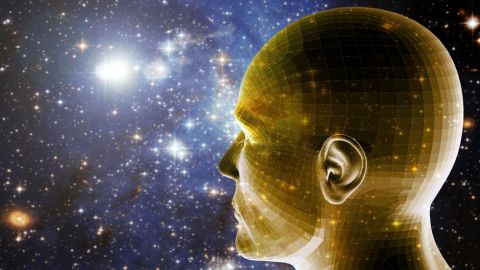Can We Reach the End of Knowledge?

What’s the Big Idea?
If Western philosophy begins with the Greek philosopher Thales, it begins with the question of whether humans can ever arrive at the dream of “knowing all there is to know.” Thales had his answer. Water held the key to understanding the universe. It was believed to be the substance from which everything that exists is derived.
As knowledge has marched triumphantly forward ever since, scientists have continued to look for ways to simplify all knowledge with a unified theory, and grown ever-confident in our ability to develop such a theory.
Groundbreaking discoveries in physics, such as the realization of the importance of dark matter, for instance, have challenged this notion. The more we learn, the more it pushes the boundaries of what we don’t know.
Marcelo Gleiser, professor of Physics and Astronomy at Dartmouth, describes this problem by using the metaphor of an island. Knowledge is an island. As this island grows, Gleiser says, the border of what we do not know also grows. So the history of knwoledge will always be incomplete.
Watch the video here:
What’s the Significance?
Can a single theory give us a consistent picture of the evolution of the universe? That is what scientists from Newton to Einstein attempted to do. The proponents of Super String Theory today are attempting to do the same thing.
String Theory is a notoriously untestable model that attempts to describe all fundamental forces and forms of matter. As Gleiser points out, in order for a theory to have true relevance to our world you must be able to design an experiment to test it. When you’re theory involves multiple hidden dimensions, you end up with a theory that is not even wrong.





